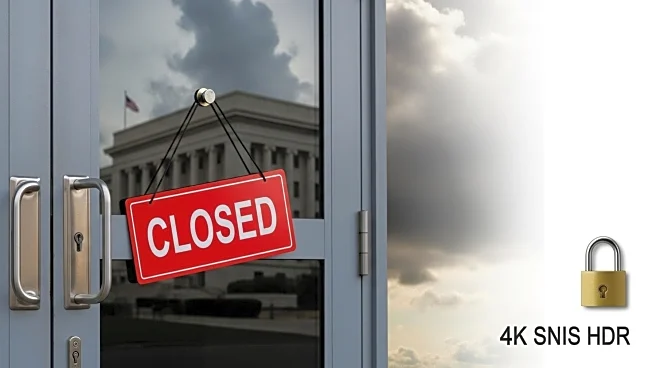What's Happening?
The likelihood of a U.S. government shutdown has increased after President Trump canceled a meeting with Democratic leaders to discuss a funding deal. The disagreement centers on the inclusion of health care provisions in the funding bill. Democrats, led by Hakeem Jeffries, are pushing to 'cancel the cuts, lower the costs, save health care,' while Republicans argue for a clean funding bill without additional policy demands. The deadline for avoiding a shutdown is October 1, and no significant negotiations have taken place.
Why It's Important?
A government shutdown could have widespread implications, affecting federal employees, government services, and the economy. The political standoff highlights deep divisions between parties on budget priorities and health care policy. A shutdown could erode public trust in government and impact the U.S. economy by disrupting services and delaying payments. The situation underscores the challenges of bipartisan cooperation in addressing critical national issues.
What's Next?
As the deadline approaches, pressure will mount on both parties to reach a compromise. The potential shutdown could prompt public outcry and influence future negotiations. Stakeholders, including federal employees and businesses reliant on government contracts, will be closely monitoring developments.









